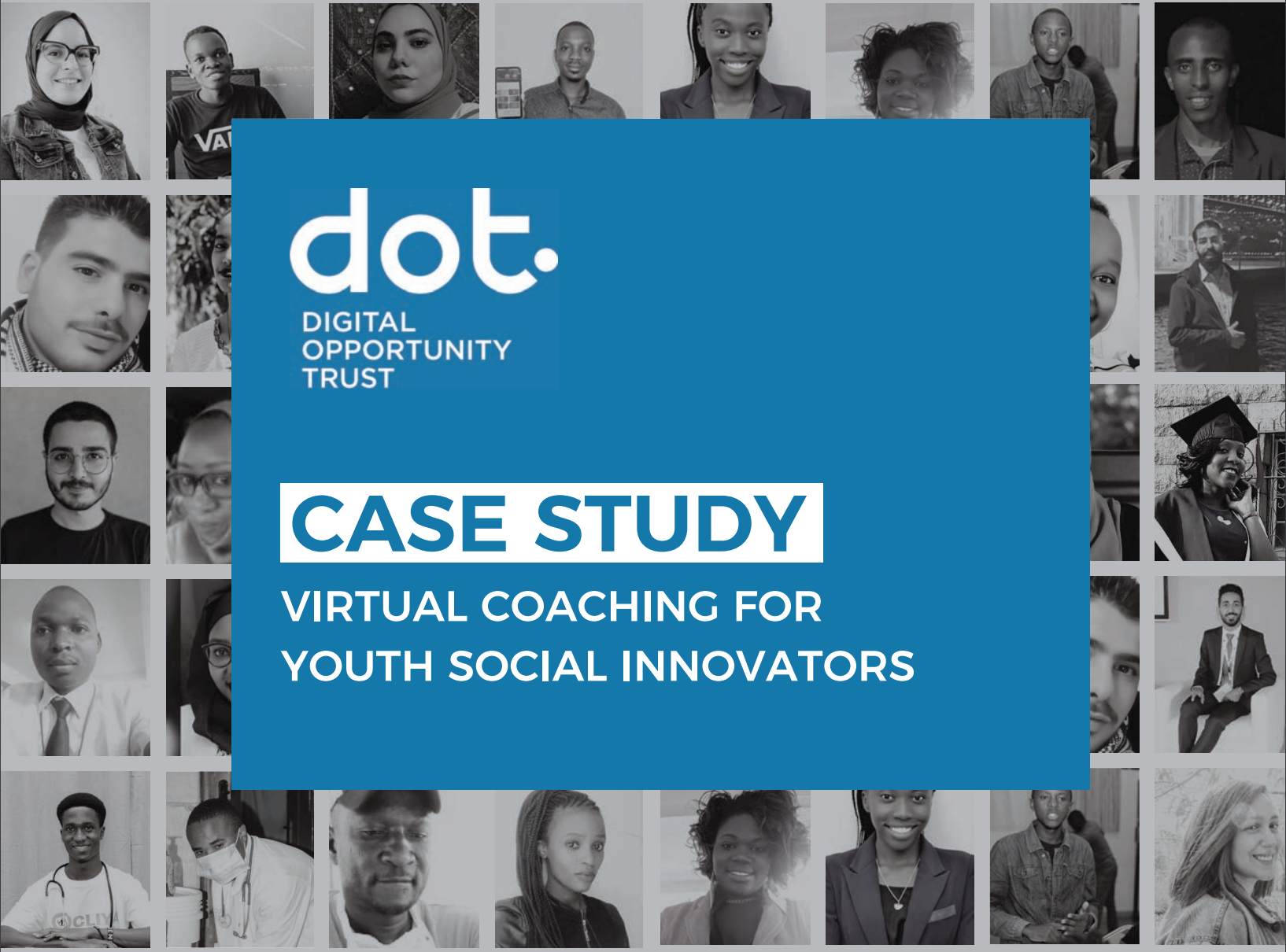Case Study: Virtual Coaching For Youth Social Innovators
Today we’re launching our latest case study: Virtual Coaching for Youth Social Innovators.
This case study provides an overview of an entirely virtual coaching pilot initiative with members of the #DOTYouth Street Team – a coordinated support network of youth in Africa and the Middle East who are responding rapidly and implementing COVID-19 related interventions in their communities.
The coaching pilot was developed and delivered in partnership with Coach Africa, and focused on supporting members of the #DOTYouth Street Team to develop SMART goals and action plans to strengthen and build resilience in their community-based initiatives as they transitioned out of the #DOTYouth Street Team program.
The case study outlines key learnings, methodologies and recommendations for establishing a virtual coaching model for young social innovators.
Here are 4 recommendations for how to support young social innovators through virtual coaching:
-
Every coach needs a coach. This ensures continuous improvement through feedback. The coach mentoring process was invaluable for setting DOT coaches up for successful support and relationship-building with youth. It also helps to ensure positive outcomes for youth.
-
Ensure the coaching process is clear, simple, and clearly communicated.To avoid misalignment of expectations from coaches, coachees, and mentors, it is critical to ensure that the process and purpose of coaching is clearly and simply articulated, and that all parties have indicated that they understand the purpose of the engagement. This clarity builds an important level of trust that becomes the foundation of the coach-coachee relationship.
-
Invest in the wellbeing and safety of young women. An important contribution to positive outcomes for young women is the creation of safe and inclusive spaces where they can build one-on-one relationships with coaches. Young women should be paired with female coaches, and/or provided with the option to choose the gender of their coach. Group sessions should be hosted in safe and controlled digital spaces (for example, Zoom versus Facebook Live). Coach training must include gender sensitivity and empathy-building, vocabulary and pronoun awareness, and a shared understanding of sociocultural norms and boundaries.
-
Build an ecosystem of support for youth social innovators. Both coaches and youth consistently identify a need for resources in the areas of business and technical advice, financing, skills development, and mentorship. A critical part of establishing a continuum of support for youth social innovators and supporting them to bridge the “valley of despair” is positioning them within an ecosystem of supportive organizations and resources. While coaches are well-placed to help youth identify their goals and objectives in navigating such an ecosystem, there is a tangible lack of services and support readily available to youth. A successful coaching program should be able to connect youth to critical business support through partnerships and community engagement.
For more information on the DOT’s coaching experience, key learnings and recommendations co-designed with youth, read the full report.


